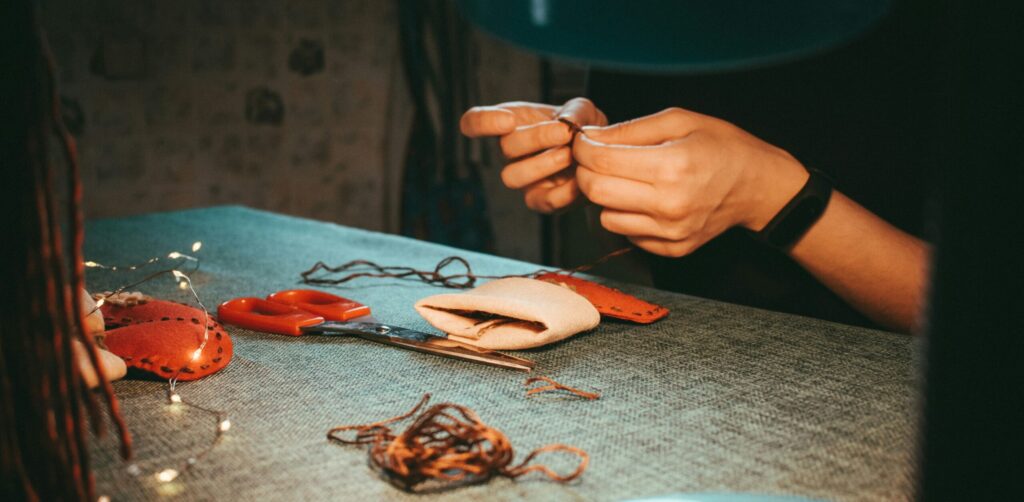This post is brought to us by Jennifer! If you missed her interview with Lacuna Loft, you can find it here! You can find all of her posts here.
“Let’s talk about sex, baby. Let’s talk about you and me. Let’s talk about all the good things and the bad things that may be… let’s talk about sex.”
– Salt N Pepa, “Let’s Talk About Sex”
The speed at which your head spins upon getting a cancer diagnosis eventually stops. You right your course; you hold your head up and barrel through invasive tests, treatment and surgeries. You may lose body parts. You may go into ‘I don’t care just get it out of me’ mode. You may cry, break things, and climb under the covers for as long as you can withstand not having to eat or pee. It’s all normal and it’s all okay. There is no right or wrong way to deal with cancer. There will be a time when you catch a glimpse of your pre-cancer life after the haze of treatment. Maybe you’ll go shopping or out to lunch. Perhaps you’ll make time for a quick mani-pedi with a friend or enjoy the solitude of sipping a cup of coffee alone in a café. In pieces, it comes back; a subtle reminder of the complete person you were pre-cancer. But in the trenches of treatment we may forget, in addition to human beings, we are intimate sexual beings as well. That is typically the last piece of the puzzle to fit into place.
The words sexuality and cancer, when used together, are an oxymoron. How can you possibly feel desirable, or attractive when you’ve been chopped up and put back together? As a breast cancer survivor I frequently refer to my Franken-boobs, for they are unlike any other body part I was familiar with. They feel numb, alien, foreign and far from sexy, trust me, they are just for looks. Add to the extensive surgical recovery the indignities of chemotherapy: nausea, mouth sores (and sores in other areas where you have mucous membranes … wink, wink) and both diarrhea and constipation. If you need radiation you may have to deal with extreme fatigue and often painful burns and blisters. Good times? No. Sexy times? Not even close. But one thing I realized during my first visit to Cancertown is that intimacy is even more important than sexuality. If you are as lucky as I am to have a kind and extraordinarily patient partner, you realize that way, way, way before the physical must come the emotional. Being intimate with someone is so much more than a bump and grind between the sheets.
When I was in active treatment my husband and I set up a routine, which, unbeknownst to us, built intimacy. While I was on disability the first thing we would do in the morning was go for a long walk at a local park. Sometimes holding hands sometimes not. There were times I wanted to be touched and times I needed to be self –contained, he respected that boundary. We would frequently grab a coffee and a bagel on the way to treatment (I found heavy starchy carbs to be great at keeping the nausea at bay). After treatment, if I felt well enough, we would go for a light lunch. We would sit across from each other in a booth, sometimes talking, sometimes reading the newspaper, sometimes doing the mundane like paying bills or making the week’s shopping list but we sat there, together. That’s intimacy. Once the hard-core chemo was done, and my appetite back to normal I still had to contend with my monthly Herceptin infusions. I would schedule them for late morning so that we could have our Herceptin lunch dates, afterwards. We were side by side, together. It wasn’t a turn-on but it was intensely comforting. I set the pace and the boundaries and he respected that allowing intimacy to grow.
As my hair began sprouting and I lost that deathly pallor that cancer embedded into my skin I began feeling pretty good about myself. I could totally rock the buzz cut and cancer gave me a bit of swagger. I was a badass and I sure as hell worked it. My husband’s desire for me was always there … I just had to be ready to accept it. We started slow; there were many nights of simply snuggling, holding each other and talking. When I finally felt ready I asked my nurses for any tips and or tricks because my body, I could tell, was so different than it had once been. Their advice? “Oh sure honey, just use lube and protection.” Ummm, okay.
Armed with a vat of KY and a box of condoms I decided to tentatively step back in the sexytime ring, but within seconds my lady parts were screaming ABORT, ABORT, ABORT. See, my nurses never told me that using KY would be akin to sitting upon hot coals. So no. No sexytime for us that night.
When we were over the trauma of the fire crotch we tried again, but this time with coconut oil, which is truly the bomb-diggity! Was it great? No. Was it better than I expected? Yes. I felt a part of myself come back to life. We took time to build up the intimacy, which eventually bridged the gap, to desire, which then led to the good stuff. I got my groove back. We got our groove back. Then I found out I had cancer again.
This time my damn hormones were the driver, which meant after the bilateral mastectomy, after the DIEP flap reconstruction, after the drains, after the chemo and after the hair loss I was scheduled for a full hysterectomy. I was quickly being stripped of any and all femininity. Being put into chemical menopause twice before I even hit age 45 and then having all my lady parts removed was a real hit to my libido. All I could envision was myself quickly aging into a hairy, sexless troll. Sure I knew we had the tools from the first visit to Cancertown but could we do it again? Would I ever feel like an intimate sexual being again?
The short answer to that is yes. Like a camel that can go weeks without water while trudging through the hot dry sandy desert we, as sexual intimate human beings, can go quite a while without sexytime. The key is to build intimacy. Intimacy comes in many forms but at its root it’s about being together, communicating and understanding the boundaries and limits a loved one with cancer may be dealing with. It’s not easy and there is no set timeframe. Listen to your body and to each other. Remember, your partner may be terrified of hurting your newly scarred and reconstructed body as well. Talk through your fears and your feelings. Explain your needs and the ways your body has changed. Be honest and embrace each little pre-cancer piece that returns after the long dry spell.







